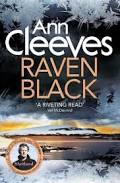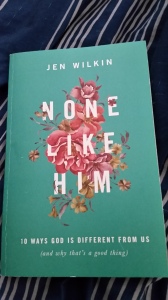I’ll start by saying the next three books I read for my prize winning challenge were all on the heavy side. All well-written and I learned a great deal about different places and times, but not exactly uplifting.

The first, Djinn Patrol on the Purple Line by Deepa Anappara won the Edgar Award for Best Novel in 2021. The Edgar Awards are given by the Mystery Writers of America and named for their patron saint, Edgar Allan Poe.
Nine-year old Jai lives with his family in India where there are too many people, dogs, and rickshaws. A smoggy sky blocks the sun, but from his doorway he can see the lights of the city’s high-rises where his mother works as a maid. Jai loves to watch reality police shows, so when one of his classmates goes missing, he enlists the help of his two best friends to try and find her. It almost seems like a game as they question people and gather clues, but when other children go missing, they begin to realize that something sinister is going on in their neighborhood.
This was a tough read but I’m glad I read it. The author worked as a reporter in India for many years. She was able to interview and talk with children who worked as scavengers or begged in the streets. She soon learned that around 180 children disappear in India every day, so she wrote this book to give them a voice and to make others aware of this problem.

The Nickel Boys by Colson Whitehead. Pulitzer Prize for Fiction in 2020.
This story takes place in Florida in the 1960’s and is based on the history of a real reform school which operated there for 111 years. Elwood Curtis, abandoned by his parents but raised by his grandmother, Elwood believes the words of Dr. Martin Luther King–he is as good as anyone. Given an opportunity to enroll in the local black college, Elwood believes his future is bright, but when someone gives him what seems to be an innocent ride, his whole world comes crashing down.
Sent to the Nickel Academy, Elwood is hopeful that he can do his time, keep up his studies, and get out soon. Unfortunately, Nickel Academy is a place of nightmares rather than reform and hope. This is only my second book by Whitehead, but I love his writing and look forward to reading more of his books. The following quote is from Whitehead on how and where he got the idea for the book.
“This book is fiction and all the characters are my own, but it was inspired by the story of the Dozier School for Boys in Marianna, Florida. I first heard of the place in the summer of 2014 and discovered Ben Montgomery’s exhaustive reporting in the Tampa Bay Times. Check out the newspaper’s archive for a firsthand look. Mr. Montgomery’s articles led me to Dr. Erin Kimmerle and her archaeology students at the University of South Florida. Their forensic studies of the grave sites were invaluable and are collected in their Report on the Investigation into the Deaths and Burials at the Former Arthur G. Dozier School for Boys in Marianna, Florida. It is available at the university’s website.” Colson Whitehead

The Known World by Edward P. Jones. Won the Pulitzer for Fiction in 2004.
“A man does not learn very well, Mr. Robbins. Women, yes, because they are used to bending with whatever wind comes along. A woman, no matter the age, is always learning, always becoming. But a man, if you will pardon me, stops learning at fourteen or so. He shuts it all down, Mr. Robbins. A log is capable of learning more than a man. To teach a man would be a battle, a war, and I would lose.” Fern Elston
Wow! I enjoyed this much more than I thought I would. Again, another great piece of writing. Jones takes a few facts about Virginia in the early 1800’s & creates a county much as Faulkner did in his books. It’s a story about slavery, (including black people owning slaves), families, small towns, greed, love, hate, and everything in between. Though not as long as some books written like this, I could see it being serialized on one of the many streaming networks in the vein of Roots or Lonesome Dove. 5 stars
I have now covered nine of the twelve prize-winning books I challenged myself to read this year. (I am currently reading my twelth). It has been interesting to see which books have won prizes and which have come out on top from both the long and short lists. Obviously, much has to do with the judges which change from year to year. Does knowing a book has won a certain prize inspire you to read it? Especially (or maybe only) if it wins in a genre you prefer? Or does that even interest you at all? What does it mean for a book to win a prize? It definitely puts them on people’s radar and many which had been virtually unknown go on to become best-sellers. Fair or not?



























 T
T













